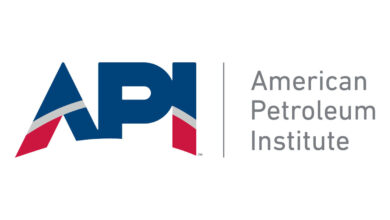How China’s EV Industry Got So Big

The IRA continues to employ tax credits. But for the first time, it allows companies to buy and sell tax credits to each other.
A new crop of startups have appeared to help companies trade these new “transferable” tax credits. One of the largest is Crux, a New York-based startup backed by Andreessen Horowitz and Lowercarbon Capital.
On Tuesday, Crux announced that it has now brought some of the country’s largest energy developers into its fold. Clearway Energy, Intersect Power, Pattern Energy, and Électricité de France (commonly known as EDF) have all made strategic investments in Crux, the company announced. It had not previously disclosed their involvement in January’s $18.2 million Series A round.
“We had an opportunity to bring in some of the leading developers who collectively represent a pipeline of more than 100 gigawatts of power,” Alfred Johnson, Crux’s CEO, told me.
Crux has now raised more than $27 million in capital since its founding early last year. The offshore wind developer Orsted, as well as the energy developers LS Power and Hartree, have previously joined as strategic investors.
Under the Inflation Reduction Act, as in the past, companies can claim money on their taxes by building zero-carbon electricity generation, new factories, buying electric vehicles, and more.
But energy developers and utilities rarely need to use all the tax credits that they generate from their projects. A $30 million solar farm might generate as much as $10 million of tax credits, for instance — far too much for most companies to use in a reasonable amount of time.
That meant that developers had to bring in a third-party firm — usually a bank or another financial institution — that could pay for the privilege of using those tax credits. Before the IRA passed, many clean energy projects were therefore structured as complicated “tax equity” deals, where the bank or tax credit “buyer” owned part of the project so that it could claim its tax credits. About $20 billion in tax equity deals happened last year, according to research from the law firm Norton Rose Fulbright.
The IRA aimed to make that process easier by, in essence, creating a market for tax credits.
Crux estimates that $7 to $9 billion of these new “transferrable tax credits” were sold in that new market last year. It believes that the opportunity will grow rapidly. The advisory firm Evercore has projected that the transferrable tax credit market could exceed $100 billion by 2030.
Crux is not the only company that hopes to capitalize on that burgeoning market, potentially speeding the energy transition at the same time. Basis Climate, another New York-based startup, is also trying to serve as a key platform in the space.
Ilmi Granoff is an expert on climate finance, a senior fellow at the Sabin Center for Climate Law, and an advisor to Basis Climate. “The market is going to be diverse and large enough to support a number of pure play platforms that are specialists in this — and you’re going to have the banks moving in, consultancies, the tax advisors, and more,” Granoff told me. “For those looking for an environmental commodities market that really drives climate change, you can stop looking at the voluntary carbon market and just monetize the tax credit market for carbon solutions. It is going to be a very reliable market, backed by the government.”
Johnson, the Crux chief executive, also pointed to the scale of climate-related investment on the horizon. “We just have to build so much in the next 10 years. The level of infrastructure investments that have happened up to this point — and the scale of what will be built — is really, really dramatic,” Johnson said.
Crux’s product is a standardized platform where developers, utilities, and manufacturing companies can describe and sell their tax credits to buyers.
When a buyer first uses Crux, all tax credits available on the service are presented anonymously. They can then anonymously contact a specific seller. The buyer and seller can gradually reveal information to each other throughout the ensuing negotiation, culminating in a Crux-hosted “data room” where each teams’ accountants and lawyers can trade and view documents relevant to the sale.
“This is not a point and click transaction,” Johnson told me. “These are still complicated transactions with lots of moving pieces, with many underlying documents and lots of stakeholders at the table.” The goal of Crux, he said, is to make these transactions “efficient and standardized.”
The company says it’s already having some success speeding up the average sale. It recently facilitated a deal between an electricity utility, which was selling tax credits, and a Fortune 100 company, which was buying them, in just 22 days, Johnson told me. By contrast, a traditional tax equity deal would take six to nine months to structure and close, he said.
Many of the company’s leaders once helped shape high-level Democratic policy. Johnson, a former White House aide under President Barack Obama, was deputy chief of staff to Treasury Secretary Janet Yellen until 2022. He and Crux’s cofounder, Allen Kramer, previously cofounded the startup Mobilize, which helped organizations manage and recruit volunteers.
William Daley, a former Obama White House chief of staff and Commerce Secretary under President Bill Clinton, joined Crux as a senior advisor last week.
In an interview, Daley told me that — with the defense industry excepted — he could not remember the government investing in a strategic industry the way it is now investing in clean energy. “These are economic decisions that investors are making — they’re not just going out there and doing things that may or may not be financially rewarding,” he told me. “For every dollar the government puts forward in a subsidy or credit, the private sector is investing $5.”



